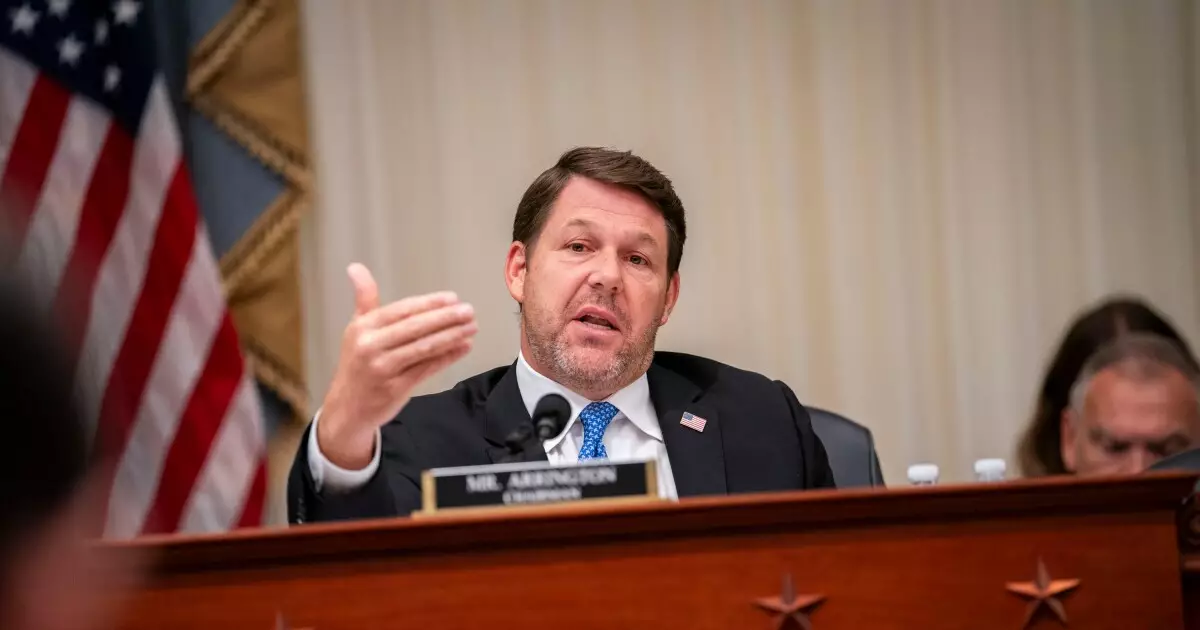The fiscal 2025 budget resolution currently under consideration in the U.S. House of Representatives reveals an unsettling reality in American politics—a landscape marred by division, miscommunication, and contrasting priorities. As the House prepares to deliberate on a budget plan that was swiftly passed by the Senate, we’re faced with a myriad of questions about the future of tax policy and fiscal responsibility. The Senate version has been criticized as lacking the ambition necessary to address the real fiscal challenges we face; its proponents deem it a pragmatic step forward, while critics argue it is a retreat from responsible governance. It’s a classic case of political theater, where alarm bells are ringing, yet politicians seem more interested in posturing than in productive policymaking.
Conservative Dissent and Party Unity
A concerning schism is emerging among conservative lawmakers, with several expressing their discontent regarding the Senate’s approach to the budget resolution. A significant argument posits that this version is a “watered-down” attempt, watering down critical tenets like spending cuts and tax reforms central to fiscal conservatism. This opposition raises questions about party unity within a narrow GOP majority in the House. The critical responses to the Senate’s budget resolution emphasize the uncomfortable fact that many party members are not aligned on fundamental fiscal principles. If House leaders cannot hammer out bipartisan consensus, the ramifications could extend far beyond the upcoming vote, jeopardizing the entire GOP agenda.
Deficits and Debt Ceiling: An Ominous Outlook
Another alarming aspect of the proposed Senate measure is the projected increase of the deficit, estimated to reach a staggering $5.7 trillion over the next decade. This unsustainable trajectory is a bitter pill for the American public to swallow, especially given the perennial fear of ballooning national debts. Adopting a current policy baseline model allows lawmakers to mask the true costs associated with extending tax cuts, trading transparency for political expediency. The looming debt ceiling increase of up to $5 trillion further underscores the irresponsibility of the Senate’s fiscal strategy, raising eyebrows over whether we are accelerating toward a financial precipice rather than steering towards stability.
Tax Cuts or Tax Increases? The Municipal Market’s Stake
Among the considerable concerns surrounding the new budget is the potential impact on municipal bonds due to possible limits on the municipal bond tax exemption. For local governments desperately seeking relief and stability, this could spell disaster. What becomes increasingly apparent is that lawmakers are caught in a vicious cycle of justifying tax cuts for wealthier individuals while disregarding the collateral damage these policy choices may inflict on smaller municipalities and less affluent citizens. By trying to balance tax cuts for some with new burdens on others, the GOP risks losing the trust and support of those it purports to serve.
The Path Forward: Pragmatism versus Ideology
The conflict at hand reveals the tension between ideology and pragmatism, particularly within the Republican Party. While some figures, like Senate Budget Chair Lindsey Graham, herald the Senate’s resolution as a leap toward making tax reforms permanent and revitalizing government spending, many fiscal conservatives voice skepticism. Echoing their concerns, House Budget Chair Jodey Arrington described the changes as “unserious and disappointing.” The real struggle lies in reconciling the desire for immediate tax reforms with the need for long-term fiscal health. Without serious negotiations that balance these competing demands, we risk turning a blind eye to the larger economic picture.
A Call for Unity and Responsibility
As Republicans gear up for crucial discussions on the budget and tax bill, it becomes apparent that the time for decisive action is now. The upcoming votes will not only reveal the strength and unity of the GOP but also lay bare the party’s willingness to confront critical fiscal challenges head-on. In this tense moment, party leaders must stress the importance of responsible governance and economic stewardship. We must remember that unity does not mean consensus; it means finding common ground amidst differing beliefs. If the GOP fails to act decisively, it raises serious questions about their commitment to economic prosperity and responsible budgeting that truly serves all Americans.

